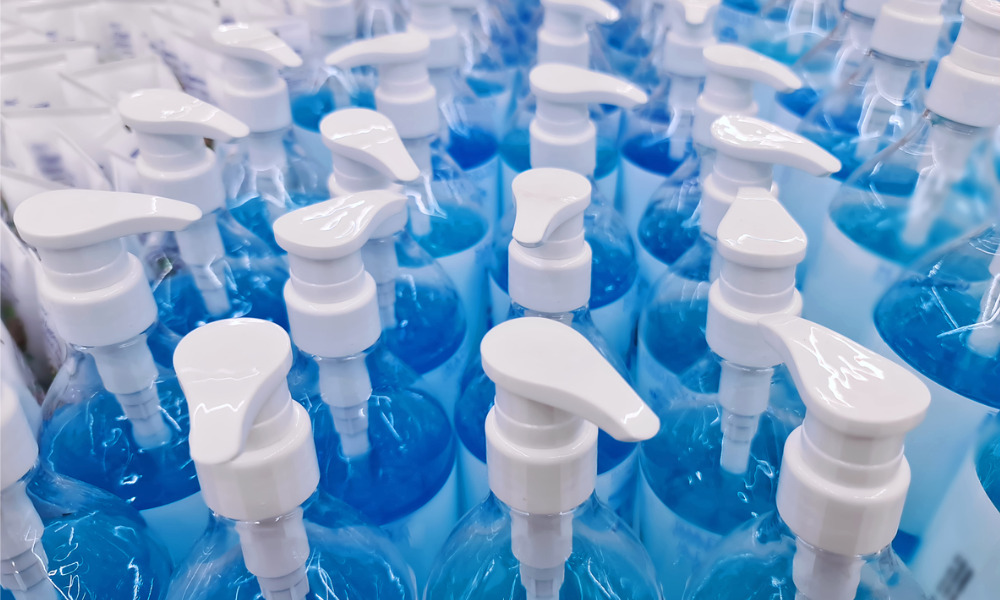Lawyers discuss legal obstacles in retooling production operations

As hand sanitizer flew off the shelves at unprecedented rates and health-care workers reported critical shortages of ventilators and personal protective equipment earlier this year, some manufacturers stepped up to meet the growing demand by retooling their operations to produce new products in support of the COVID-19 health crisis. Statistics Canada reported a seven-fold increase in sales of hand sanitizer products in mid-March compared to the same period last year. Governments called upon private companies to shift operations to help meet the demand for a range of products.
Some automotive parts manufacturers have pivoted to produce medical face shields and ventilators. Major brands such as Canada Goose supported the cause by shifting operations away from the production of coats to focus on medical gowns, while Labatt Breweries of Canada offered its services by producing hand sanitizer.
While these shifts have been invaluable, they also raise a host of legal considerations for in-house counsel to tackle.
Labatt had previously established a disaster relief program in 2012, shifting production at facilities from beer to drinking water. Since 2012, the beer manufacturer has provided more than 680,000 cans of clean drinking water to residents and on-the-ground responders in need.
“It was natural for us to make the change to hand sanitizer, which is largely alcohol based — an ingredient that we have readily on hand,” says Charlie Angelakos, vice president, legal and corporate affairs at Labatt Breweries of Canada. The team worked with Health Canada to ensure that all necessary labelling approvals were obtained and to ensure the product met required standards.
“Licences and appropriate authorizations were required and we had to operate in a legal landscape, which was new to the team,” says Angelakos. “An unexpected issue was that it was a donation rather than a sale, so there were legal implications of a donation versus selling the hand sanitizer.” The legal team had to ensure that the protocols and policies around producing hand sanitizer were followed to standards set by the World Health Organization. Labatt has produced 100,000 bottles of sanitizer, which were distributed to communities across the country with the help of Food Banks Canada. It was also distributed to Labatt’s critical employees in breweries and distribution centres.
With nine breweries in different provinces and different public health orders across the country, Angelakos and his team had to be nimble to manage their normal workload together with initiatives such as hand sanitizer production and donations.
“The companies that are pivoting are the ones that have an aptitude for an area where there is a need,” says Noel Courage, a partner at Bereskin & Parr LLP. Getting government approval is key. In fact, Health Canada recalled certain hand sanitizers from the market in June because they contained industrial-grade ethanol.
Manufacturers that choose to retool must monitor intellectual property issues, regulatory issues and employment issues, Courage says. Some manufacturers even opted to share the IP and design specifications of certain products. For example, medical technology company Medtronic shared IP relating to its Puritan Bennett 560 ventilator, together with manufacturing documents and software codes, to address a global shortage of the devices.
“How you go about granting IP rights to other people is something you have to be mindful of as you push your technology out there for the good of society,” says Courage.
Many auto parts manufacturers jumped on the bandwagon to support the cause by pivoting operations to produce items such as face shields and parts for ventilators — giving rise to various liability issues, as well as distribution and commercial negotiation concerns. The Automotive Parts Manufacturers’ Association led an initiative to recruit and support auto manufacturers in their efforts to help the crisis, in partnership with governments.
The APMA began by engaging in discussions with more than 70 companies before selecting the best partners.
“You first have to be certified to make a part that’s for medical use, and there is a whole regulatory rigour that you have to go through with Health Canada,” says Gian Paolo Vescio, general counsel at the APMA, which represents all auto part makers and suppliers throughout the country. “There are clear commercial terms on how a product will be handled and fitted in a vehicle.
“Auto parts manufacturers work with very tight margins and tight timelines and make pretty complicated parts. They have tight business practices and are very efficient and nimble, so a lot of that skillset is on show when making these types of PPE products,” says Vescio.
Businesses entering into government agreements to retool their operations to produce health-care supplies also need to be aware that they may be subject to greater scrutiny for future foreign investment, according to Shawn Neylan, a partner in Stikeman Elliott LLP’s competition and foreign investment group.
“Obviously, it’s important for the government to have supply, but being aware of the consequences of entering into certain types of relationships with the government is important,” says Neylan. “In-house counsel need to think about this and not sleep-walk into a problem when they take on something and then realize it’s going to cause them a big issue in M&A transactions down the road.” Entering into such a government agreement may make it harder for companies to do transactions with non-Canadians.
“It’s basically another way to create a potential national security issue,” says Neylan.










